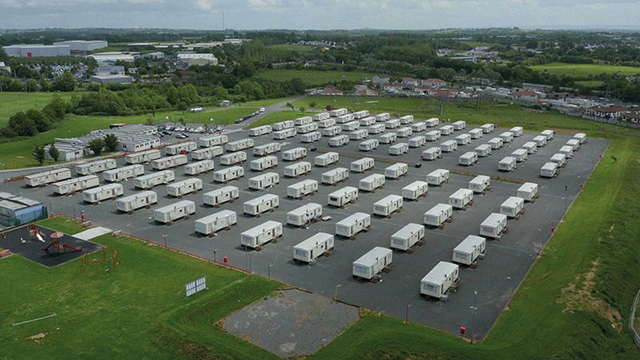
[dropcap]T[/dropcap]he lack of media coverage for asylum seekers in national news has a major impact on orchestrating change. Asylum seekers and refugees in our society appear to be actively hidden from the news agenda.
COVID-19 has dominated the news agenda for 13 months. This has left little room for the exposure of injustices within the system. In turn, this has removed the accountability and pressures necessary to accelerate crucial changes to the system.
The pandemic has become the Government’s scapegoat for accountability on situations occurring within Direct Provision centres. The publication of the White Paper acts as an ambitious diversion strategy to the ongoing, daily issues faced by asylum seekers and refugees.
The introduction of the White Paper marks a welcome change to the existing framework. But people will remain within the Direct Provision centres for the duration of the pandemic.
The conditions within the centres across the state are substandard. There are major issues of overcrowding and limited food resources at the forefront of the vast number of concerning issues.
In February of this year, 90 asylum seekers began a hunger strike at the Ashbourne House centre in county Cork. This was the second hunger strike within the system since the beginning of 2021.
A 35-year-old Syrian man began his hunger strike in the Mosney direct provision centre in January. This man came to Ireland fleeing torture in Syria where his wife-to-be was killed.
At the end of January 2021, the direction provision centre in Killarney saw an outbreak of 25 cases. It is understood that 24 of those cases were residents and one was a staff member.
The nature of congregated accommodation within the centres across the country has left many individuals within the system vulnerable to the virus. Social distancing has been virtually impossible to implement as a result of overcrowding.
Direct provision was established in the year 2000 to house asylum seekers entering Ireland in pursuit of international protection. It was initially a temporary solution for six months while asylum seekers awaited the processing of their documents for refugee status by the state.
The reality in 2021 is that many refugees remain in the system for long periods of up to five years. At present, there are approximately 7,000 people living within the system across the state.
Many of these people have been waiting years to have their documents processed. The system has been described by international human rights organisations as inhumane, illegal and degrading.
In February of this year, Minister Roderic O’Gorman released the long-awaited White Paper that intends to dismantle the current direct provision system.
It proposes that asylum seekers will stay at Reception and Integration centres in own-room, own-door accommodation. If this succeeds, it will see the end of the overcrowded dormitory accommodation that currently exists.
Thorough examinations of the White Paper show that many of the suggested changes will not be implemented through legislation. The plan is to house applicants in the Reception and Integration centres for four months after their initial application.
There is no suggestion in the proposal that this will be regulated by statute. There are concerns relating to the fact that if this is not protected by legislation, applicants could face significantly longer waiting times than what the proposal suggests.
Its focus intends to identify the needs of this group and provide necessary services and supports. These will include an English language programme, employment, education and health services. It intends to integrate asylum seekers into Irish society from day one.
Following this stage, asylum seekers will be provided with housing which will be built or acquired by the state. Applicants will then be offered the right to work after a period of six months along with employment supports.
The state must be held accountable to see this change successfully implemented, to ensure that we do not see the same mistakes from the past. The original Direct Provision system was proposed to be for a period of six months 21 years ago.
The Government’s White Paper sets out to close all existing Direct Provision centres by 2024 when the new system is set to be completed.
In a statement from the Irish Human Rights and Equality Commission, Sinéad Gibney, the Chief Commissioner stated, “there have been enough promises since the system of direct provision was established as an emergency measure twenty years ago. This White Paper needs to focus on targets being set and met each year.”
In 2017, the Government stopped releasing information on deaths in Direct Provision. In 2020, a total of four people living within the system died. The state did not publish the causes of these deaths.
NGOs have called for greater transparency into the causes of their deaths, names, dates and nationalities. In February, Minister Roderick O’Gorman has set out intent to develop a formal policy of recording deaths of the deceased within the state’s asylum system.
People living within this system face direct repercussions from the virus. A national conversation and state intervention are necessary to prevent further injustices.
It is vital that there are ongoing public discussions to ensure their basic human rights are met through intended action in the White Paper.
Kathleen Keane
Image Credit: RTÉ



